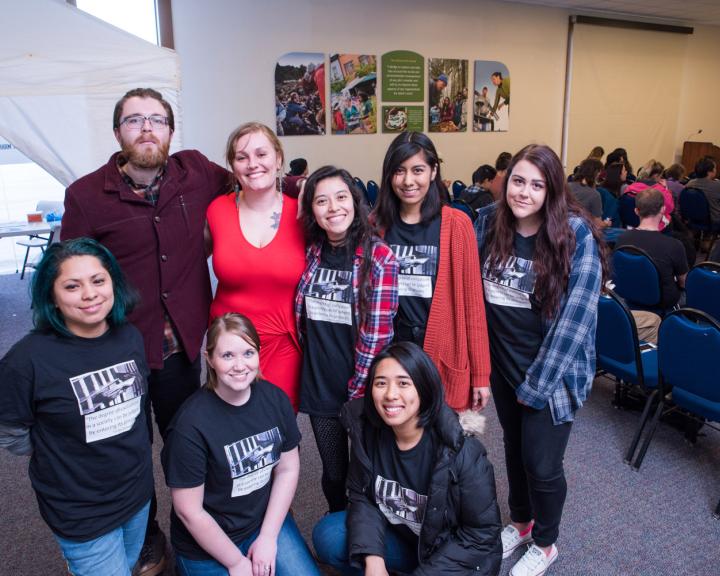Breadcrumb
Criminology & Justice Studies, B.A.
Criminology & Justice Studies students find an active and supportive departmental culture that surrounds coursework in social theory, methods, inequalities of crime and justice, law, policy, action. Faculty members teaching in this major come from multiple disciplines central to addressing current issues facing the U.S. systems of justice and law. Students learn about the social construction of (il)legalities, how race, class, gender and sexuality impact the criminal justice system, and how much of what they think they know about crime is actually false.
Why this program
Undergraduate students have access to a variety of hands-on learning and research experiences that are typically reserved for grad students at other universities.
Small class sizes allow you to connect with professors and peers in ways you wouldn’t at other universities.
Graduates will have a solid foundation to effect social change in legal professions, community activism, research, and the criminal legal system.

Academics & Options
Our program prepares students to be transformative leaders in a variety of locations, from probation and legal advocacy to community activism and policy research.
Combined Bachelor’s and Master’s Program
Earn your B.A and M.A. in just five years (three years for transfer students) with our Combined Bachelor’s and Master’s Program.
You can complete either a Sociology B.A. or a Criminology & Justice Studies B.A, then continue on to receive a Public Sociology M.A.
Did you know?
Faculty members teaching in this major come from multiple disciplines central to addressing current issues facing the U.S. systems of justice and law.
Our campus provides a sense of care, support and belonging, and better prepares students to approach their chosen fields through a lens of social justice.
We strive for societal and economic improvement, demonstrated in our personal passions and the professions that we pursue.

Careers
Graduates have solid skills that look good on a resume, but also have the critical thinking skills to be successful in a wide variety of careers. You will be able to use your sociological imagination to understand issues faced by people and groups that interact with the criminal justice system.
- Attorney
- Community Organizer/Activist
- Conflict Mediator
- Criminalist
- Crisis Response Team Worker
- Domestic Violence Service Provider
- Drug Counselor
- Law Enforcement
- Legal Advocate
- Public Defender







